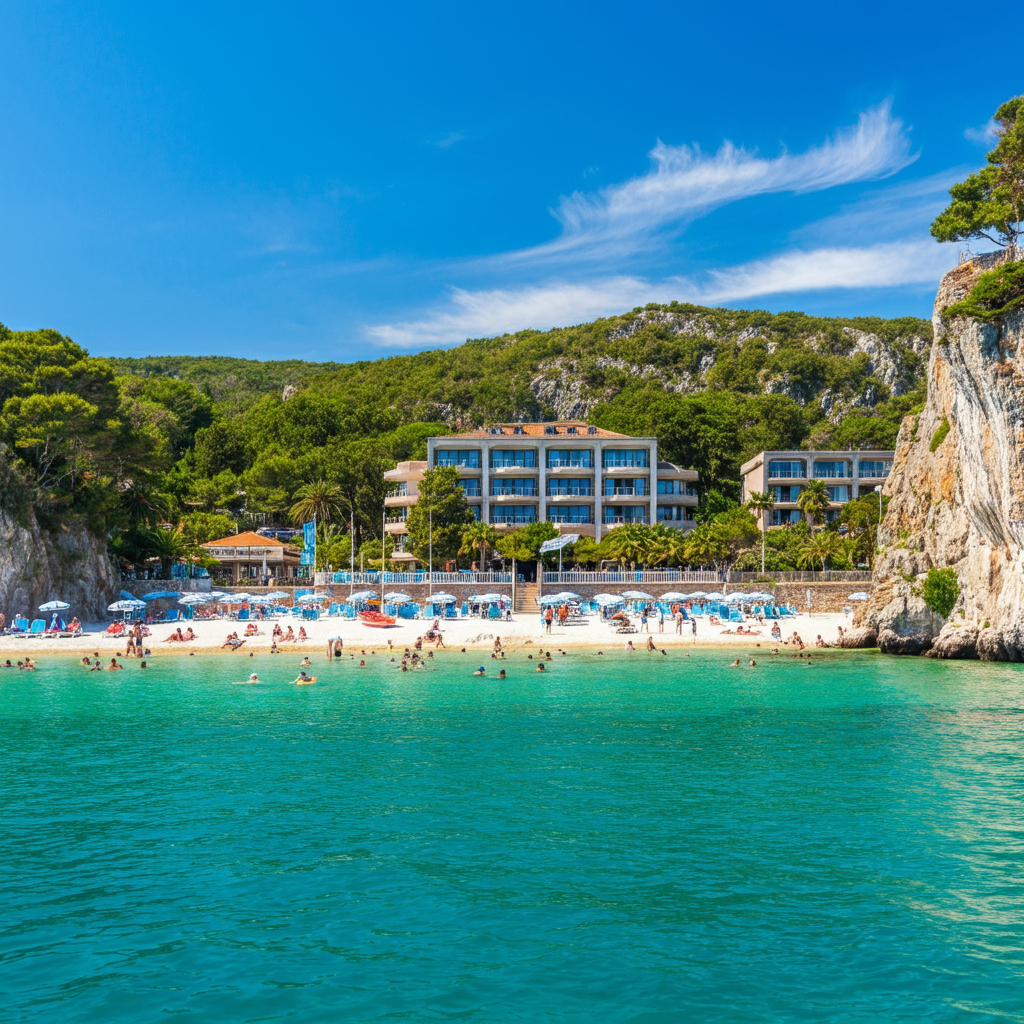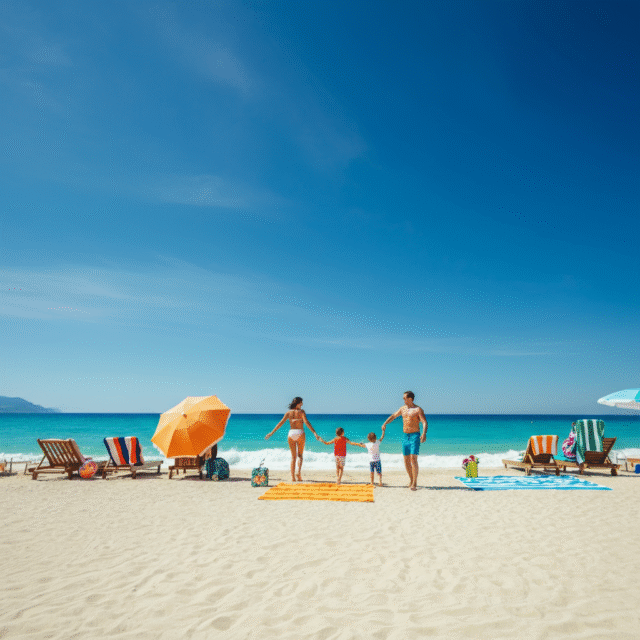The words “Is summer vacation still the best time to travel” have long inspired excitement. Lazy long days filled with sunshine, sun screen, and the excitement of planning our next escape has become the epitome of a moment in time that is attached to this season. Summer has long been the season for families, students and even solo travelers to pack their bags and get away, journeying to sandy beaches, leafy forests and misty mountains. But with a world that seems to change every day, is summer vacation the best time to do so?
To get at that question, we’re going to break down the pros and cons of summer travel and charting how travel is changing. In doing so, we will sprinkle in tips for getting the most out of your summer travels and discuss alternatives for those who would rather avoid the seasonal scrum.
The Case for Summer Travel
It’s no wonder summer vacation still the best time to travel are forever linked. Here are some of the top reasons to hit the road or fly the friendly skies this time of year:
1. Ideally, this would be Adventure Weather
It’s outdoor exploration season. What are the advantages of a summer solstice? The summer solstice’s long daylight hours and mild temperatures make it easier for people to go swimming, hiking, or attend theme parks, or make other outdoor plans. The turquoise waters of Greece, the rolling vineyards of Italy and national parks like Yellowstone spring to life in the summer. And if you love sunshine and blue skies, summer tends to provide them.
2. From a timing point of view school- and job-related schedules are in sync
Summer is one of the few seasons in which everyone on the family roster, including school-age children, can sync up schedules. The school break gives parents the flexibility of planning an extended vacation, without worrying over missed school days. College students also have long breaks and so summer is a perfect time for friends or family to reconnect.
3. Seasonal Events and Festivals
Some places are at their best during summer festivals and seasonal activities. Take for instance Europe, whose summer is full of events such as the Edinburgh Festival Fringe in Scotland or La Tomatina in Spain. At home, summer means Fourth of July parties, music festivals, and outdoor concerts from coast to coast in the U.S. traveling in summer means you’re likely to witness a destination at its liveliest.
4. Reliable Travel Plans
The weather is generally pretty good, which really lowers the chances that heavy snow or rainfalls would mar your trip (something that’s more likely happening in other seasons). Rain could be in the cards, but you’re not quite as likely to deal with crippling delays as you are during winter travel woes.
The Cons of Summer Travel
Although summer is topping the charts for most people’s favourite season, travelling during this season comes with a few drawbacks. Here’s a look at what could go wrong:
1. Crowds, Crowds and More Crowds
If you have ever gone to Disneyland in the middle of July, you know how oppressive summer crowds can feel. Many people are taking vacation all at once, meaning busy airports, overbooked hotels and long lines at top attractions. For those who appreciate peace and quiet or would rather not be elbow-to-elbow with tourists, traveling during summer can be an exercise in frustration. The signature cities you all know, say Paris or Rome for example, they get so mobbed with tourists in June, July and August.
2. Higher Costs
This is also peak season, so this is also peak price. Airlines, hotels and tour operators cash in on the surge in demand by inflating their rates. “Flights can feel astronomically priced in the summer, particularly for international flights. For families on a budget, such price hikes can stretch trip planning to the point of breaking.
3. Overwhelmed Destinations
Tourist hot spots can seem overwhelmed, leaving less than a relaxing experience. Beaches can get crowded, each grain of sand bearing a towel and an umbrella. National parks like Yosemite or Zion can suffer from traffic jam effect as thousands of people converge on the same trails. Over-tourism frequently affects the residents who live near the overwhelmed hotspots, fueling tension between the exhausted destinations and the visitors who seek them out.
4. Scorching Weather
Summer weather, however much it is celebrated, can be hard. In countries in southern Europe, the southern United States, and parts of south Asia, temperatures can reach levels that are unbearable, even dangerous, for outdoor activities. People who visit cities like Dubai or Bangkok soon learn that sightseeing in temperatures of 100 degrees or more is not for the faint of heart.
Rising Alternatives to Summer Travel
The way we travel is changing. New trends have emerged and these offer attractive options for those who want to escape the summer rush. Here are a few of the most significant swings:
1. The Rise of Off-Season Travel
Increasingly, travelers are finding that exploring a destination during its so-called “off” season can yield certain pleasures. There are a lot of good reasons to travel in the spring and fall, known as shoulder seasons. Cherry blossom season in Japan and the Italian countryside in September are delightful options to the summer crush. Off-season travel is generally less expensive, and otherwise crowded tourist spots are less busy and less hectic.
2. Working form Home and Flexible Hours
The rise of remote work has enabled many people to reconsider when and how they travel. With no office to report to and no fixed schedule to follow, travelers can explore all year. That has some intentionally waiting until fall or winter to travel and circumvent peak summer season.
3. Trends: More Travel in Winter
Winter travel has become popular, too, as travelers look for comparatively cozy escapes, like snowy mountains, or a Christmas market in Europe. More and more people are making ski season, Nordic winter tours or tropical playing-hooky what they plan their trips around, sprinkled into the salted caramel of cold boredom back home.
4. Focus on Sustainable Travel
Over-tourism is making news about the importance of environmentally friendly travel. Aware travellers increasingly shun summer, when destinations groan under the weight of peak visitor numbers. Spreading trips across the year makes it easier for local communities to handle the effects of tourism.
How to Maximize a Summer Staycation
Challenging as it may be, summer is still a great time to venture out and explore new places or return to old favorites. With the right kind of smart planning, you can minimize the pitfalls and optimize the prospects. Here’s how:
1. Book Early
One of the most straightforward ways to save on summer travel is to book flights, hotels and tours early. Airlines generally offer better fares for early bookers, and by reserving months in advance, you can ensure you get the most popular hotels or rental properties before they are sold out.
2. Be Flexible on Timing
(May and late August can also be good times to travel.) These months are characterized by less crowded streets and cheaper prices than the peak months of June and July.
3. Explore the Road Less Traveled
Avoid tourists by staying away from touristy places. Instead of Santorini in Greece, the island of Naxos may be equally beautiful and less crowded. Likewise, small towns in Central Europe could provide charm but without the crowds of Paris or Prague. Hidden gems can be some of the best finds.
4. Plan for the Weather
And yes, pack for summer vacation still the best time to travel conditions showers! Comfortable cold-weather clothes, a sunblock, and a good water bottle are what you will need to have a comfortable space. Reserve activities for cooler morning hours, ensuring you beat the intense mid-afternoon heat, and book indoor activities when it’s scorching hot outside.

5. Use Technology to Save Money
You can use apps like Google Flights or Hopper to keep tabs on ticket prices and scout out deals. Airlines or hotel loyalty programs can also help cut costs. It is much easier to be budget-minded these days, given the plethora of tools to assist cost-conscious adventurers.
Is Summer Really the Best Time to Travel?
The bottom line? It all comes down to what you like the most and what works best for you. Because it’s hard to argue that this is not a richly well-rounded season. The weather is perfect, work schedules mesh and destinations all around the world are humming with life. For families or individuals who thrive off the energy of the city and don’t mind a little hustle and bustle, there’s nothing like traveling in summer.
But then again, if you like travel that’s more peaceful, or if you’re looking to score off-season rates, you’re in luck with shoulder and off-season travel. “Today’s traveler isn’t limited to discretion,” he continued, “You can now plan — or have the freedom to plan — when you want to see, rather than if.”
Final Thoughts
Is summer vacation still the best time to travel you can still plan memorable, stress-free vacations with a little forethought. Alternatively, daring to break the mould and planning autumn or spring escapes, may offer you as much satisfaction. In the end, the “best” time to travel depends on what you’re looking for and how you approach your trips. Every season has its own magic, be it lounging on a beach in July or walking amid colorful fall leaves in October. The true happiness is in slipping your suitcase into new places, making new memories for a lifetime.









